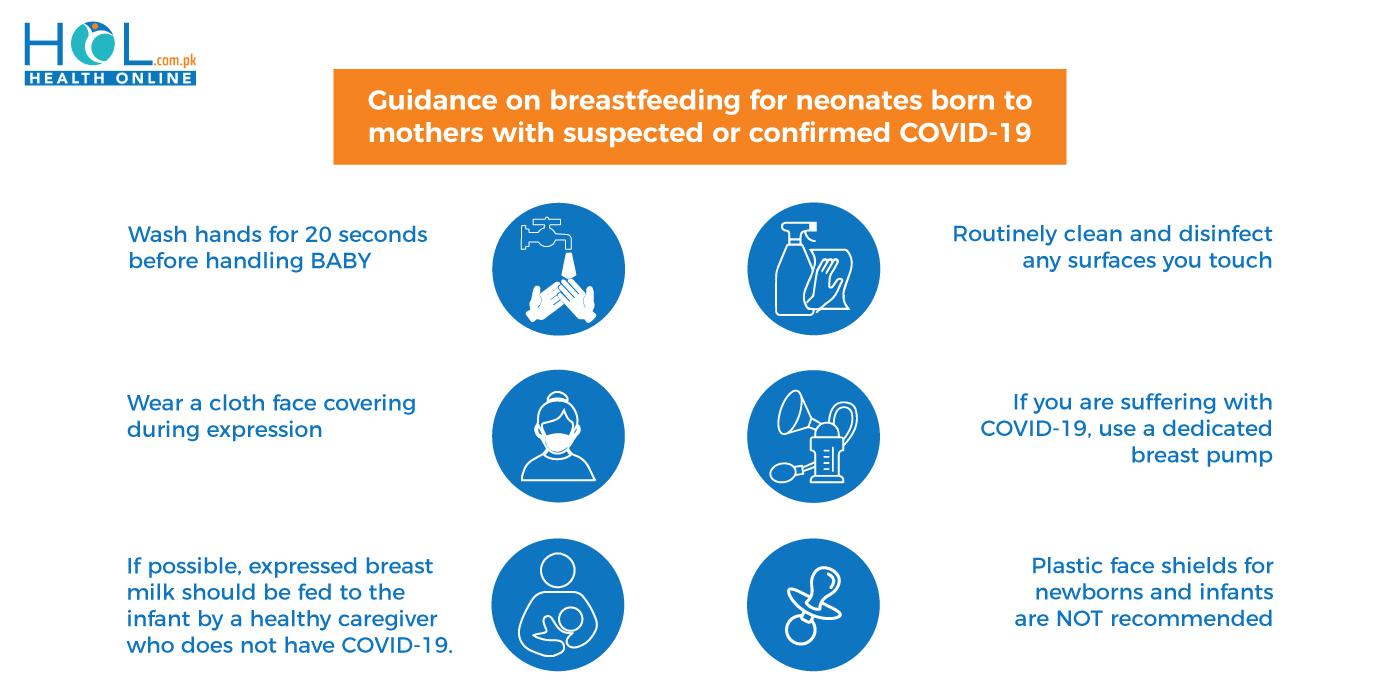Breastfeeding is the cornerstone of infant and young child survival, nutrition and development and maternal health. Early and uninterrupted skin-to-skin contact, rooming-in and kangaroo mother care also significantly improve neonatal survival and reduce morbidity. Moreover, Breast milk provides protection against many illnesses and is the best source of nutrition for most infants.
At present, data are not sufficient to conclude vertical transmission of COVID-19 through breastfeeding. In infants, the risk of COVID-19 infection is low. The infection is typically mild or asymptomatic, while the consequences of not breastfeeding and separation between mother and child can be significant. It is recognized that the ideal setting for the care of a healthy, full-term newborn during the birth hospitalization is within the mother’s room. Temporary separation of the newborn from a mother with suspected or confirmed COVID-19 should be considered to reduce the risk of spreading the virus to the newborn.
If the mother with suspected or confirmed COVID-19 does not choose temporary separation in the hospital, she should take precautions to avoid spreading the virus to the newborn, including washing her hands and wearing a cloth face covering when within 6 feet of her newborn. The newborn should be kept ≥6 feet away from the mother, as much as possible, including the use of physical barriers (e.g., placing the newborn in an incubator).
You, along with your family and healthcare providers, should decide whether and how to start or continue breastfeeding.
We do not know for sure if mothers with COVID-19 can spread the virus to babies in their breast milk, but the limited data available suggest this is not likely.
If she has COVID-19 and choose to breastfeed:
- Use a dedicated breast pump (not shared).
- Wear a cloth face covering during expression and wash your hands with soap and water for at least 20 seconds before touching any pump or bottle parts and before expressing breast milk.
- If possible, expressed breast milk should be fed to the infant by a healthy caregiver who does not have COVID-19, is not at high-risk for severe illness from COVID-19, and is living in the same home.
- Plastic face shields for newborns and infants are NOT recommended.
She should be instructed to wash her hands using soap and water, especially if her hands are visibly soiled, before touching the infant. If soap and water are not available, she should use a hand sanitizer with at least 60% alcohol.


